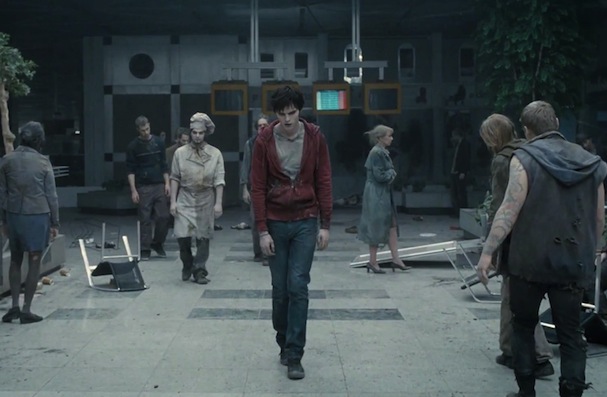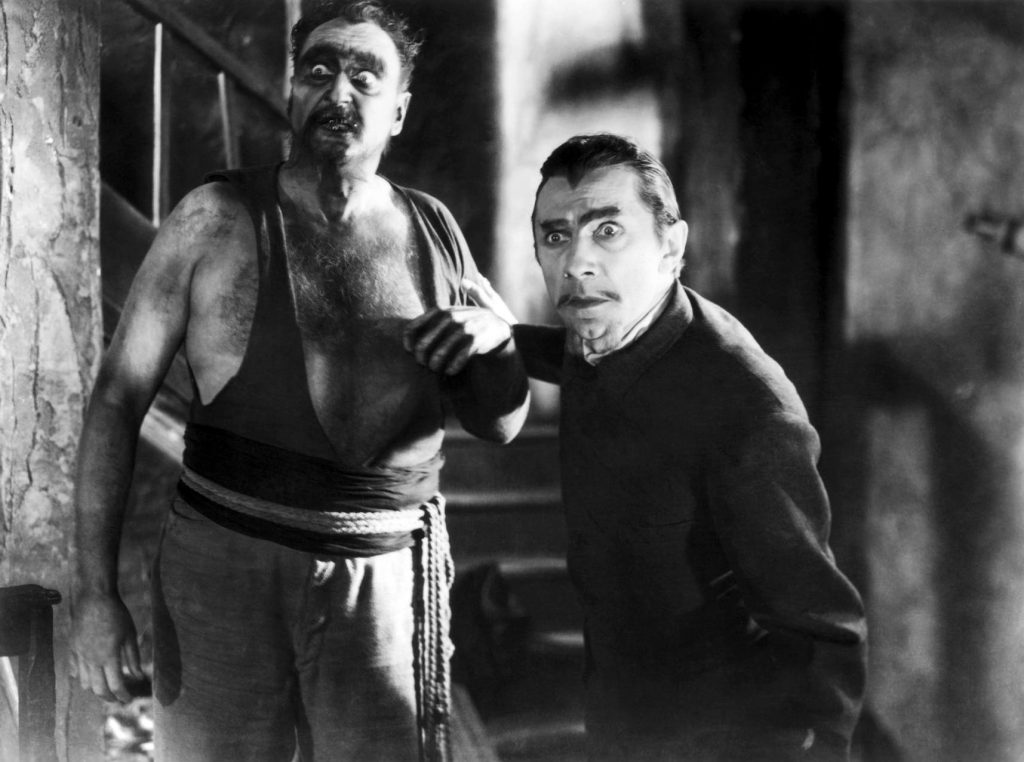Like plastic grocery bags or the Internet, zombies have become so ever-present they’ve lost much of their meaning. More insulting than this, they’ve become stock characters. They’re up there with “manic pixie dream girl,” “loveless career woman” and “drunk fratboy.” What was once evidence of insane authority (Cabinet of Dr. Caligari), the ravages of “civilization” (Night of the Living Dead) or inherent black power (Sugar Hill) is now a vehicle for romance (Warm Bodies), action (I am Legend) or comedy (any Scary Movie). They’re so popular they’re almost a raison d’etre, like teen nudity or explosions. After a while you forget what else happens in movies—is it possible poor memory is a kind of brain death? Seems benign enough.
As a branch of horror, zombies offer a taxonomic challenge: either it’s a subgenre with subgenres or it’s a genre that’s had its “cycle.” If you like the latter notion, the primitive Caribbean zombie films don’t take resurrection for granted, though they do occasionally critique capitalism by using their Lazaruses for slave labor. The memorable golden (though I recall them as gray) ghouls painted by George Romero are the result of our ‘tampering with science,’ and they cross the insane authority of Caligari with dummy-leaders a la Idiocracy; they also resolve any anxieties about heathen evil with a thick veneer of secular inhumanism. Everything south of Angel Heart has a shot at showing us the inner-crisis of the undead, decay included. At this point it’s not a sh&te-job for an actor to play a zombie; often the job’s full of special compensations. Billy Bob Thornton and Matt LeBlanc got to be undead in Confederate uniforms (Grey Knight).
The subject of resurrection was a sacrilege to natural law but a celebration in voodoo ritual, and for great purpose and power. When transplanted Bela Lugosi resurrects locals to work in his sugar mill he’s layering sacrilege on top of sacrilege by usurping the ritual of the workers. The title White Zombie nods at the fears of white slavery, and casting Lugosi (Dracula) recalls the lore that vampires hypnotically motivated corpses from their (typically consecrated) graves. Besides anticipating globalization by like eighty years, Lugosi becomes an ad hoc zombie leader and a more neutral metaphor for the evils of flesh peddling. He even waxes ecstatic about his amazingly low overhead.
Ironically he’s not even that power hungry…unlike George Coulouris, who plays a doctor turned mad when he faces down a Central American god in The Woman Eater. Colouris only “eats” hotties ritually divorced from their souls. He uses these sexy automatons (dehumanized female workforce) as fuel for his “Woman Eater” and he’s certain the thing’s sap could earn him a Nobel prize…and Bela coulda been richer than the man who started Ikea.
Back when TV’s The Walking Dead premiered, Chuck Klosterman wrote an op-ed for the New York Times conjecturing that our attraction to zombie invasions was their resemblance to our monotonous day-to-day. The zombies approach continually but we see them coming and know they’re easy to kill, which makes fighting a zombie apocalypse like “performing tedious tasks in which the only true risk is being consumed by the avalanche.” This comparison both qualifies zombies as beasts of modern angst and super boring shells just begging for some measure of invention to be applied. This is the beauty of zombies: versatility, but it comes with a caveat.
They always and never existed. They’re individual and they’re a mass. It’s one of few subjects we can discuss with generalities and still describe somewhat accurately. It also really doesn’t matter. Their vacancy is their versatility, and our indifference is a gift we give them—in their limited scope they can be ANYTHING, to us, you know, if we want. They’re almost anti-icon.
Read “I, Zombie,” part II.





